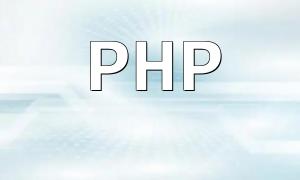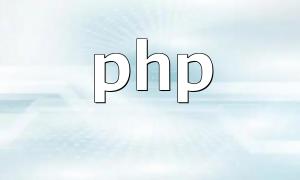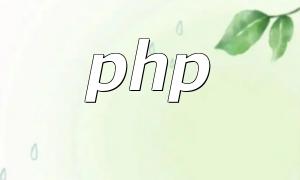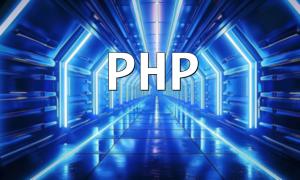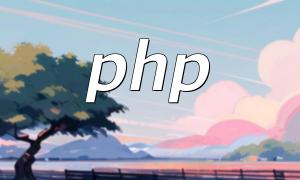PHP training courses are designed to help learners systematically master PHP development skills, ranging from fundamental concepts to advanced techniques. The curriculum covers PHP syntax, object-oriented programming, web development, database management, and framework usage. Whether you are a beginner or an experienced programmer, structured training can significantly enhance your development capabilities.
At the introductory level, students will learn the basic syntax and structure of PHP, including variables, data types, operators, and control statements. This section helps learners understand how PHP works and builds a solid foundation for further study.
Object-oriented programming (OOP) is a key component of modern PHP development. The course introduces concepts such as classes, objects, inheritance, polymorphism, and encapsulation, along with an introduction to Object-Relational Mapping (ORM). This enables students to write cleaner, more maintainable, and reusable code.
Web development is one of PHP’s most common use cases. Learners will study how to create web pages using HTML, CSS, and JavaScript, while implementing backend functionality with PHP. This includes form handling, data validation, session management, and user authentication — providing a complete understanding of full-stack development.
Database interaction is a crucial part of PHP development. The training covers MySQL and other databases, focusing on SQL query writing, database connections, CRUD operations, and data modeling. Students will learn how to design and manage efficient, data-driven applications.
At the advanced level, the course explores popular PHP frameworks such as Laravel and CodeIgniter. Students will learn about Test-Driven Development (TDD), REST API creation, and Docker-based containerization. These skills are essential for building scalable, enterprise-level applications.
Security and debugging are critical to ensuring the reliability of PHP applications. The course covers common security risks such as SQL injection and cross-site scripting (XSS), along with best practices for prevention. It also introduces debugging tools and techniques to help developers identify and fix issues efficiently.
PHP training courses offer a comprehensive and structured approach to mastering web development. Covering everything from syntax fundamentals to advanced frameworks, these programs equip learners with the technical and practical skills needed to build and maintain robust, dynamic web applications.


